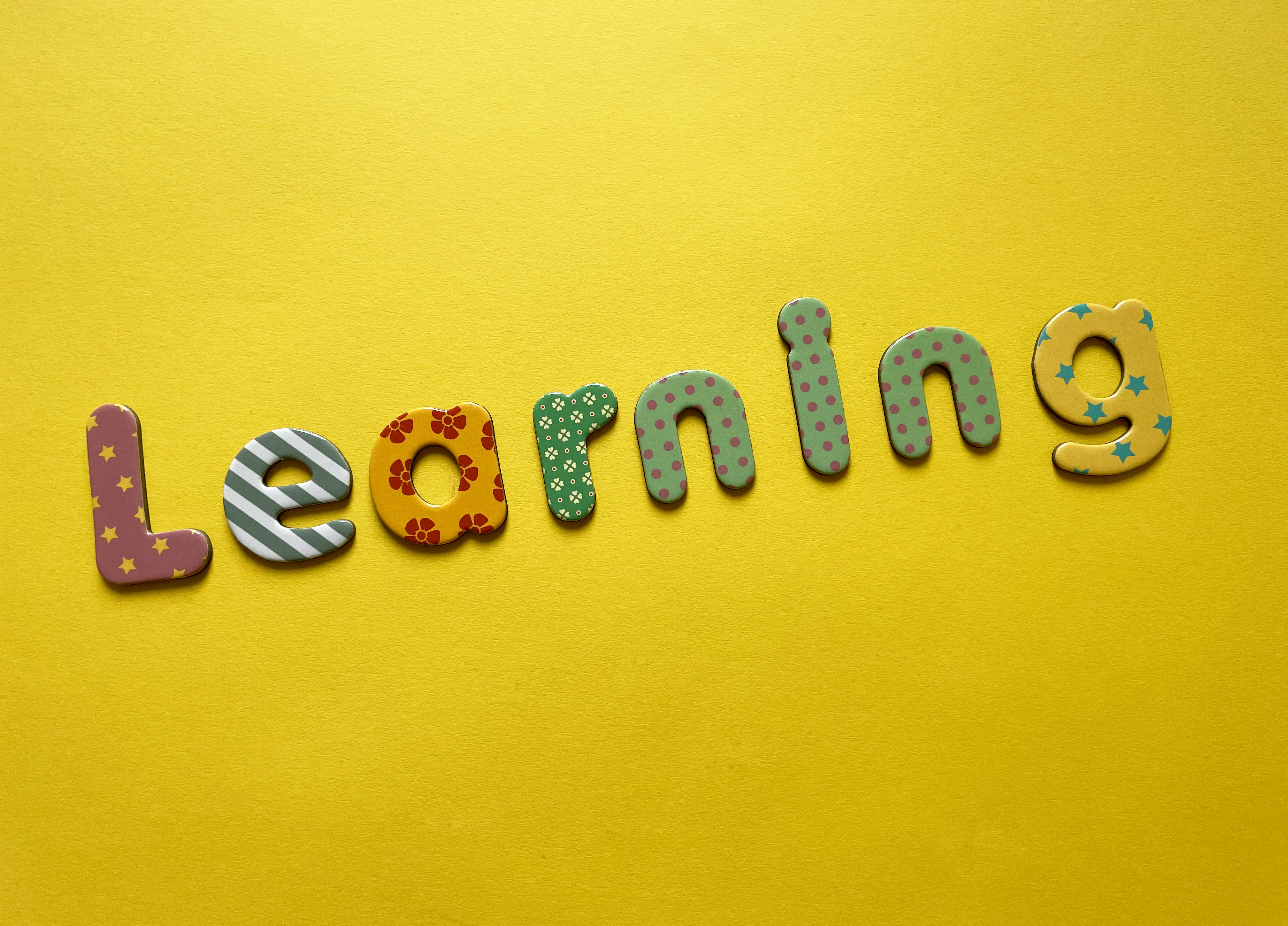Introduction to the Evolution of Education
The landscape of education has undergone significant transformations throughout history, influenced by various technological advancements, pedagogical theories, and societal needs. Initially, education was primarily a privilege of the elite, with oral traditions being the mainstay of knowledge transfer. The invention of the printing press in the 15th century marked a pivotal shift, democratizing access to information and leading to increased literacy rates among the broader population. Subsequently, the establishment of formal schooling systems during the 19th and 20th centuries laid the groundwork for standardized curricula and teacher-led instruction, fundamentally altering how knowledge was disseminated.
As we progressed into the digital age, the advent of the internet revolutionized the way learners engage with educational content. Online learning platforms emerged, offering unprecedented flexibility and accessibility to learners worldwide. The integration of videos, interactive simulations, and digital resources into traditional classroom settings has also redefined pedagogical approaches, emphasizing student-centered learning and collaboration over rote memorization. Furthermore, the rise of artificial intelligence and data analytics has facilitated personalized learning experiences, allowing educators to tailor their teaching methodologies to the diverse needs of their students.
Looking ahead to 2025, the evolution of education appears poised to continue along this trajectory of innovation. With the proliferation of augmented reality (AR), virtual reality (VR), and other immersive technologies, the methods through which knowledge is acquired are set to become increasingly interactive and engaging. The importance of adaptability in educational methods cannot be overstated, as contemporary learners will likely require diverse approaches that combine technological tools with traditional learning frameworks. As the global knowledge economy evolves, the educational sector must remain responsive to these changes, ensuring that learners are equipped with the skills and competencies necessary to thrive in an ever-changing world.
The Role of Technology in Learning
Technological advancements have fundamentally altered the landscape of education, significantly shaping how knowledge is acquired and processed. In 2025, we see that innovations such as artificial intelligence (AI), virtual reality (VR), and immersive learning environments are driving this transformation. AI has emerged as a pivotal tool, enabling educators to tailor educational experiences to meet the unique needs of each learner. Through adaptive learning systems, AI analyzes individual student performance and offers personalized content and resources, thereby enhancing engagement and facilitating mastery of complex concepts.
Virtual reality further revolutionizes learning by creating immersive educational experiences that traditional classrooms cannot replicate. With VR, students can traverse historical sites, explore the human body, or even engage in simulated scientific experiments, all from the comfort of their classrooms. This engagement not only captivates learners’ attention but also fosters a deeper understanding of subject matter through experiential learning. By immersing students in dynamic environments, VR enhances retention rates and stimulates curiosity, which are crucial for academic success.
Moreover, the adoption of immersive learning environments emphasizes collaboration and communication among students. Tools such as augmented reality (AR) and 3D modeling allow learners to work together on projects in ways that were previously unimaginable. These environments cultivate critical 21st-century skills, such as problem-solving, teamwork, and creative thinking, effectively preparing students for a workforce increasingly reliant on technology.
Overall, the integration of these advanced technologies in education is more than a mere trend; it represents a shift toward a more personalized, engaging, and effective learning experience. As technology continues to evolve, it fundamentally reshapes the educational landscape, ensuring students are well-equipped to thrive in a rapidly changing world.
Personalized Learning Experiences
In recent years, the concept of personalized learning has gained significant traction within the education sector. The shift towards personalized learning experiences recognizes that each student has unique learning preferences, strengths, and weaknesses. Adaptive learning technologies have emerged as a critical component of this transformation, enabling educators to tailor educational content to individual learners. These technologies analyze students’ interactions with learning materials, allowing for real-time adjustments and recommendations that cater to their specific needs.
Personalized learning goes beyond traditional classroom settings, promoting a customized approach in curriculum development and instructional practices. By understanding various learning styles—such as auditory, visual, or kinesthetic—teachers can ensure their lesson plans engage students more effectively. For instance, visual learners may benefit from infographics and videos, while kinesthetic learners might thrive through hands-on activities. This differentiation not only enhances engagement but also fosters better educational outcomes for all students.
The implications of personalized learning for teachers are profound. As educators increasingly adopt data-driven methodologies, the emphasis shifts from a one-size-fits-all instructional model to one that actively supports individual learning paths. Teachers are empowered to utilize real-time data from adaptive learning platforms to identify gaps in knowledge, allowing them to intervene promptly with tailored resources. Additionally, this approach encourages educators to play the role of facilitators, guiding students through their unique learning journeys instead of merely delivering content.
In conclusion, personalized learning experiences mark a significant evolution in education, leveraging technology to embrace the diversity of learners within the classroom. By understanding students as individuals and adapting educational strategies to suit their needs, educators can foster an environment that enhances learning and prepares students for success in a rapidly changing world.
Collaborative Learning in Diverse Environments
Collaborative learning represents a progressive approach to education that emphasizes teamwork and social interaction among students. This mode of learning has gained traction in recent years, particularly in environments where inclusivity and multicultural exchanges are valued. By fostering collaboration, students are not only exposed to a richer array of perspectives but also develop critical skills essential for success in the modern workforce.
The integration of virtual collaboration tools has revolutionized the educational landscape. Platforms such as video conferencing software, collaborative document editing, and interactive online forums facilitate real-time communication among students, regardless of geographical barriers. This allows learners from diverse backgrounds to engage with one another, share experiences, and work collectively on projects. Such environments nurture a sense of belonging, mitigate isolation, and encourage a robust exchange of ideas, thereby enhancing the learning experience.
Furthermore, collaborative learning encourages the development of essential soft skills, such as communication, leadership, and empathy. These competencies are invaluable in diverse environments where individuals must navigate cultural differences and work cohesively towards a common goal. Group projects and discussions open avenues for deeper understanding and respect, as students learn to appreciate unique viewpoints derived from various cultural contexts.
In diverse classrooms, the intermingling of social dynamics enriches the learning process. Students are more inclined to take initiative and responsibility when working collaboratively, leading to increased engagement and motivation to learn. Moreover, this approach reduces the anxiety often associated with traditional learning environments, paving the way for a more comfortable and supportive atmosphere conducive to knowledge acquisition.
In conclusion, the emphasis on collaborative learning in diverse environments is pivotal for contemporary education. By leveraging technology to promote teamwork among students from various backgrounds, educational institutions can create a more inclusive and effective learning experience that prepares students for a globalized world.
The Importance of Lifelong Learning
In the rapidly evolving landscape of the 21st century, the importance of lifelong learning has become increasingly evident. As society experiences swift technological advancements and changing workforce demands, the capacity to continually acquire knowledge is essential for personal and professional growth. Lifelong learning, characterized by a commitment to ongoing education beyond formal schooling, is crucial in adapting to these transformations and gaining a competitive edge in the job market.
One effective strategy to foster a culture of continuous education is the embrace of informal learning opportunities. Online courses, webinars, and workshops provide accessible avenues for individuals to enhance their skills and knowledge base. Platforms such as Coursera, edX, and LinkedIn Learning have made it easier for learners to engage with diverse subjects, often at their own pace. By taking advantage of these resources, individuals can stay relevant in their fields and explore new interests that may lead to career changes or advancements.
In addition to online learning, community learning initiatives also play a pivotal role in promoting lifelong education. Local workshops, adult education programs, and community college courses enable participants to engage face-to-face, fostering a sense of community and collaboration. Such initiatives not only encourage social interaction but also create an environment where learners can share experiences and knowledge with one another, enriching the overall learning experience.
Furthermore, organizations can enhance their workforce by prioritizing employee development through training programs and learning opportunities. By cultivating a culture of learning within the workplace, companies can significantly improve employee satisfaction and retention. In essence, the significance of lifelong learning cannot be overstated; it serves as a cornerstone for adaptability, innovation, and ultimately, success in a world characterized by perpetual change.
Shifting Roles of Educators and Institutions
As we approach 2025, the landscape of education is undergoing significant transformation, particularly in the roles assumed by educators and educational institutions. Teachers are increasingly moving away from the traditional model of being the sole knowledge-givers in the classroom and are evolving into facilitators and mentors. This shift is driven by the burgeoning need for personalized learning experiences that cater to the diverse needs of students in today’s digital age.
In this new paradigm, educators are expected to adopt roles that prioritize guiding students through complex learning materials and developing critical thinking skills. Rather than merely delivering content, they are now tasked with fostering a collaborative learning environment that encourages engagement and exploration. Facilitators play a crucial role in curating resources, leveraging technology, and modeling effective learning strategies. This evolution necessitates a shift in instructional methods, where interdisciplinary approaches and project-based learning are often emphasized.
Moreover, institutions must recognize the importance of providing professional development and ongoing support for educators as they navigate these changes. Comprehensive training programs are essential to equip teachers with the skills and knowledge necessary to embrace their new roles. Educational institutions must foster a culture of continuous learning, empowering educators to experiment with innovative teaching methodologies and adapt to the rapidly changing educational landscape.
Lastly, the collaboration between educators and institutions is crucial for implementing these changes effectively. Institutions must support educators by cultivating an environment that encourages experimentation and adaptation. This partnership will not only enhance the teaching experience but will also contribute to the holistic development of students, preparing them for future challenges.
Global Access to Education
In recent years, the global landscape of education has undergone significant transformations aimed at promoting equitable access to quality learning opportunities. These changes are driven by a combination of innovative technologies, novel educational initiatives, and extensive collaborative efforts among various stakeholders. Access to education remains a pressing issue, particularly for marginalized communities that often lack resources and infrastructure. Addressing this challenge requires a multifaceted approach that harnesses the power of the digital age while fostering partnerships across borders.
One of the pivotal advancements in this realm is the proliferation of online learning platforms. Websites that offer Massive Open Online Courses (MOOCs) have emerged as valuable resources, enabling individuals from diverse backgrounds and geographical locations to engage with quality educational content. These platforms often feature courses developed by prestigious universities and industry leaders, providing learners with access to knowledge that transcends traditional educational barriers. Furthermore, the integration of mobile technology has facilitated learning on-the-go, making it more accessible to those in remote or underserved regions.
Global collaboration plays a crucial role in transcending educational disparities. International partnerships involving governments, non-profit organizations, and the private sector actively work to implement programs that address the needs of marginalized communities. Such initiatives often include funding for educational resources, training for educators, and infrastructure development. Additionally, cultural exchange programs and mentorship opportunities foster global awareness and understanding, enriching the educational landscape and empowering local communities.
In conclusion, the efforts to bridge educational gaps highlight the growing recognition that education is a fundamental right. By leveraging technology and fostering collaboration, stakeholders can create a more inclusive educational environment, paving the way for a brighter future where quality learning is accessible to all individuals, regardless of their socio-economic status. As we progress towards 2025, the commitment to global access to education will remain vital in shaping a well-informed, skilled, and equitable society.
Measuring Success in the Future of Education
As education evolves, so too does the need for effective measures of success that accurately reflect a learner’s growth and development. In 2025, traditional methods of assessment such as standardized testing are gradually being replaced by more comprehensive evaluation tools. These innovative metrics aim to provide a holistic view of student progress, focusing not only on academic achievement but also on emotional, social, and ethical dimensions of learning.
Today’s educators recognize that success cannot be pigeonholed into mere test scores. As such, assessment practices are being redefined to include personalized learning journeys, peer evaluations, and self-assessments. These techniques encourage students to reflect on their growth, thereby using their experiences as benchmarks for success. Furthermore, the introduction of educational technology facilitates ongoing feedback, allowing learners to track their progress in real-time and adjust their learning strategies accordingly.
Additionally, the emergence of interdisciplinary assessments emphasizes collaboration and creativity, highlighting the importance of teamwork and problem-solving skills in a connected world. For instance, project-based learning encourages students to engage in real-world applications of knowledge, assessing their abilities to analyze situations, propose solutions, and work within a team effectively. Such strategies not only enhance engagement but also promote critical thinking and resilience, crucial competencies for the future workforce.
The metric for success in education must also contemplate emotional intelligence and ethical reasoning. Evaluating how well students navigate social interactions, manage emotions, and consider ethical implications of their actions presents a more comprehensive understanding of their development. Educators will increasingly seek ways to incorporate these competencies into assessment frameworks, ensuring that students are prepared to thrive in an interconnected and morally complex society.
In summary, the future of measuring success in education pivots towards a multifaceted approach that embraces a wide spectrum of skills and attributes, ensuring that learners emerge not only as knowledgeable individuals but as well-rounded citizens equipped to face future challenges.
Conclusion: Preparing for the Future of Knowledge Acquisition
As we explore the rapidly evolving landscape of education and learning, it is essential to recognize the profound transformations occurring in how we acquire knowledge. The advent of technology and innovative pedagogical approaches is reshaping educational frameworks, promoting personalized learning experiences and accessibility. In this context, we have observed how blended learning, artificial intelligence, and virtual reality are becoming integral components of modern education. These methodologies not only enhance engagement but also cater to diverse learning styles, ensuring that education becomes more inclusive.
Furthermore, the shift towards lifelong learning emphasizes the importance of adaptability in the face of continual change. Individuals are encouraged to embrace an attitude of curiosity and flexibility, as traditional educational paradigms are giving way to more dynamic, experiential forms of learning. This change places greater responsibility on both educators and learners to pursue knowledge actively, fostering a culture of inquiry that transcends conventional settings.
These developments extend beyond personal achievement; they hold significant implications for society as a whole. The democratization of education through online platforms can potentially reduce disparities in access to high-quality learning resources. By equipping future generations with the tools to navigate a complex, information-rich world, we pave the way for innovation and critical thinking that can address global challenges.
Ultimately, as we approach 2025 and beyond, embracing change in educational methods will be vital. It is imperative for individuals to remain open to evolving practices that enhance learning experiences. By doing so, we not only prepare ourselves for the demands of the future but also contribute to the collective advancement of societies, ensuring a more informed and capable populace.



